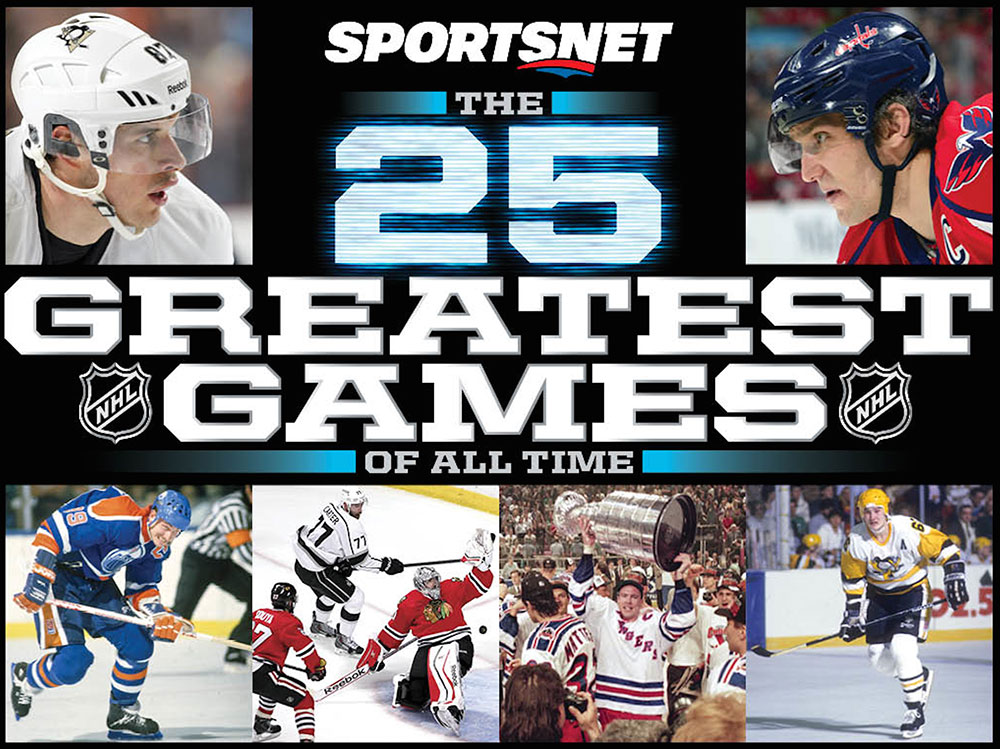In Sportsnet magazine’s latest digital issue, The 25 Greatest NHL Games of All Time (it’s free!), five of our insiders recall the greatest hockey game they’ve ever witnessed. Here, Gare Joyce remembers the greatest almost-NHL game ever.

The seeming contradictions abound. First, there’s the idea that the greatest NHL game ever featured only one NHL team. Then, there’s the fact that the game didn’t produce a winner.
Not that it matters. It’s accepted as gospel that the New Year’s Eve 1975 classic at the Forum—Red Army 3, Canadiens 3—is one of the great hockey games that has been and will ever be played. In the 39 years and counting that have passed, it has often been discussed, and grainy highlights have been rewound and played back thousands of times. Be that as it may, the real historic significance of the game has largely been missed.
This game was the foundation for the Canadiens dynasty of the late ’70s. They were the most dominant team of any era, a team that lost a total of just 35 games in the regular season and playoffs during the first three of their four straight Stanley Cup–winning seasons.
Those of us old enough to remember those Montreal teams—Lafleur, Robinson and the rest—are also old enough to forget that the Canadiens team that played the Red Army had been knocked out in the second round of the playoffs the previous spring by Buffalo and watched Philadelphia raise the Cup. That is to say, the dynasty hadn’t quite started. The New Year’s Eve game made a very good team great.
 We’ve ranked the 25 Greatest
We’ve ranked the 25 Greatest
NHL Games Ever Played. Get the free, digital-only edition of Sportsnet magazine on your iOS or Android device right now.
Doug Risebrough was the 21-year-old centre of the Kid Line, with Mario Tremblay and Yvon Lambert as his wingers. He’d go on to be a member of all four of the Canadiens’ Stanley Cup winners in their late ’70s run. He’s unambiguous about the Red Army’s place in that team’s history. “The Red Army game was one of the two best games that our team ever played,” Risebrough says. “The only one that would be up there with it would be game five against the Rangers in the final in ’79. And when you get down to it, that game against the Rangers was the last game of the run that we had in Montreal. Everything that came before was predicated on that Red Army game. If things had turned out differently, if we hadn’t performed, everything that came after might have looked an awful lot different.”
In the weeks before the New Year’s Eve game, the Canadiens sensed that this was going to be something more than an exhibition, one of four that the Red Army would play on its tour with the Soviet Wings. “We had an idea that we had something special with that team, but we hadn’t played to the top of our game,” Risebrough says. “We were clearly looking at Red Army as a chance to see just how good we could be.”
Back in ’75, a Cold War clash was still a novelty and the Soviets still a mystery. The contrast of styles was jarring from the first shift: the full-on vertical game of Lafleur and Co. in flight versus the patient-to-the-point-of-deliberate build of the still-mysterious Soviets. Early on, it looked like the Canadiens were going to run their opponent out of the rink, jumping out to a 2–0 lead, but the Red Army came within an inch of a win in the last minutes when Vladimir Popov beat Ken Dryden but found iron. “We outshot them 38 to 13 and that was pretty indicative of the way the game went,” Risebrough says. “Vladislav Tretiak stole the game. He was just great. But the final score didn’t matter. Whether we won, lost or tied the game, we knew we had something special.”
As Risebrough suggests, the Canadiens came off the ice that night with a sense not of being part of a historic event but rather that they were on the cusp of greatness, a point that wasn’t mentioned then nor noted in the years after a unique event: a tie for the ages.
Illustration by Jacqui Oakley










